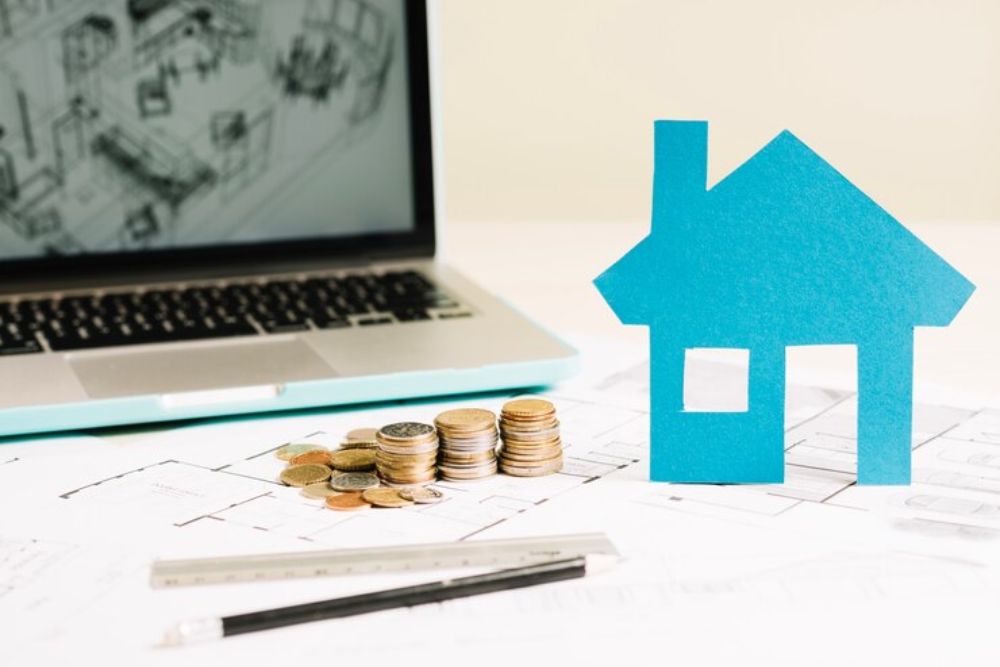Your home is likely the cornerstone of your financial well-being. The mortgage you secured to purchase it significantly impacts your monthly budget for years to come. But what if you could unlock hidden benefits within your homeownership journey? Home loan refinancing presents a powerful opportunity to potentially reduce your interest rate, adjust your monthly payments, or even access additional funds – all while keeping your cherished haven. However, navigating the world of refinancing can feel overwhelming. This comprehensive guide empowers you with the knowledge and steps to make informed decisions and potentially unlock the true potential of your home loan.
Demystifying Refinancing: Tailoring Your Loan to Your Needs
Imagine swapping your existing mortgage for a brand new one, potentially with significantly better terms. That, in essence, is home loan refinancing. It allows you to replace your current loan with a new one, offering an opportunity to achieve various financial goals. Here are some popular refinancing options to consider:
- Lower Interest Rates: Have interest rates dropped since you obtained your original mortgage? Refinancing allows you to capitalize on these lower rates, potentially saving you thousands of dollars over the life of the loan. This translates to a lighter monthly burden or the ability to pay off your home faster.
- Shorter Loan Term: If achieving mortgage-free status sooner is a priority, refinancing to a shorter loan term can make it a reality. This accelerates your payoff timeline but typically increases your monthly payments.
- Cash-Out Refinance: Need a financial boost for renovations, debt consolidation, or educational expenses? A cash-out refinance unlocks the equity you’ve built up in your home. The new loan amount will exceed your remaining existing loan balance, and you’ll receive the difference in cash. Remember, this option increases your overall loan amount and extends your repayment term.
- Loan Type Change: Transition from an adjustable-rate mortgage (ARM) to a fixed-rate mortgage (FRM) for peace of mind. ARMs offer fluctuating interest rates, which can be unpredictable. Refinancing to an FRM locks in a fixed interest rate, providing stability and budgeting ease.
Unveiling the Advantages of Refinancing
Refinancing isn’t just a financial maneuver; it’s a strategic tool with the potential to unlock a range of benefits:
- Reduced Monthly Payments: Securing a lower interest rate can significantly decrease your monthly mortgage payment. This frees up valuable cash flow that can be directed towards other financial goals, emergency savings, or simply easing your monthly budget.
- Accelerate Your Path to Homeownership: Opting for a shorter loan term through refinancing allows you to become mortgage-free sooner. This can offer significant long-term financial benefits and provide a sense of accomplishment.
- Access Cash for Important Needs: A cash-out refinance provides readily available funds for various needs, such as consolidating high-interest debt, funding home renovations to increase your property value, or financing educational pursuits for yourself or your family.
- Improve Your Loan Terms: Refinancing allows you to tailor your loan to your current financial situation. You can switch to a fixed-rate mortgage for predictability or access additional funds through a cash-out option, creating a loan that better aligns with your evolving needs.
Is Refinancing the Right Choice for You?
Refinancing isn’t a one-size-fits-all solution. While it can be a powerful tool, it’s crucial to assess your individual circumstances before diving in. Here are some key factors to consider:
- Interest Rate Environment: If current rates are significantly lower than your existing rate (typically by 2% or more), home loan refinancing can be highly beneficial. However, if rates are comparable or even higher, it might not be worthwhile.
- Loan Term Remaining: Early in your loan term, a larger portion of your payment goes towards interest. Refinancing might make more sense if you have a substantial amount of time left on your original loan (typically at least 5 years or more) to maximize potential savings.
- Closing Costs: Refinancing involves various fees like origination charges, appraisal costs, title insurance, and recording fees. Ensure the potential long-term savings outweigh these upfront closing costs. Factor in the break-even point, which is the number of months it takes for the savings from your lower interest rate to surpass the closing costs.
- Your Financial Goals: Are you aiming for early homeownership and a lighter monthly burden? A shorter loan term might be ideal. Do you need immediate cash access for debt consolidation or renovations? A cash-out refinance could be a better fit.
Navigating the Refinancing Process with Confidence
The process of home loan refinancing typically involves these key steps:
- Shop Around: Don’t limit yourself to your current lender! Compare rates and terms offered by multiple lenders, including banks, credit unions, and online lenders. This ensures you secure the most competitive refinance package with the best interest rate and minimal closing costs.
- Gather Documents: You’ll need to provide various documents for the refinancing application, such as pay stubs, W-2s, tax returns, bank statements, and proof of homeowner’s insurance. Having these documents readily available can expedite the process.
- Get a Home Appraisal: The lender will typically order an appraisal to determine your home’s current market value. This value plays a crucial role in determining your eligibility for certain refinancing options, particularly cash-out refinances.
- Lock-in Your Rate: Once you choose a lender and a competitive interest rate, lock it in for a specific period. This guarantees the rate remains valid while your loan application goes through processing, protecting you from potential rate fluctuations.
- Loan Closing: The final step involves signing the loan documents and finalizing the transfer with your current lender. Carefully review all closing documents to ensure the terms align with your loan agreement. Don’t hesitate to ask for clarification if anything is unclear.
Beyond the Basics: Additional Considerations for Refinancing
- Credit Score: Your credit score significantly impacts the interest rates and terms you’ll qualify for during mortgage refinancing. Aim to obtain copies of your credit report from all three major bureaus (Experian, Equifax, TransUnion) and meticulously review them for any errors. If you find errors, dispute them immediately. Even small improvements in your credit score can translate to substantial savings over the life of your refinanced loan.
- Consider a Mortgage Broker: A mortgage broker acts as an intermediary, connecting you with various lenders and negotiating on your behalf. This can save you time and effort in shopping for the best mortgage refinance options. However, remember that mortgage brokers may receive compensation from lenders, so it’s essential to choose a reputable broker who prioritizes your best interests.
- Tax Implications: Consult with a tax advisor to understand the potential tax implications of refinancing, particularly for cash-out refinances. In some cases, the interest paid on a cash-out refinance may not be tax-deductible as it is with traditional mortgages.
Conclusion: Making an Informed Decision for Your Financial Future
Home loan refinancing can be a strategic tool to unlock the hidden potential within your homeownership journey. By carefully evaluating your financial goals, the current interest rate environment, and the associated costs, you can make an informed decision about whether refinancing is right for you. Remember, thorough research, comparison shopping, and potentially seeking guidance from a financial advisor can empower you to navigate the refinancing process with confidence and potentially reap the long-term benefits it offers. By strategically leveraging this financial tool, you can transform your home loan into a powerful asset that fuels your financial well-being and empowers you to achieve your dreams.
Read more blogs here.



